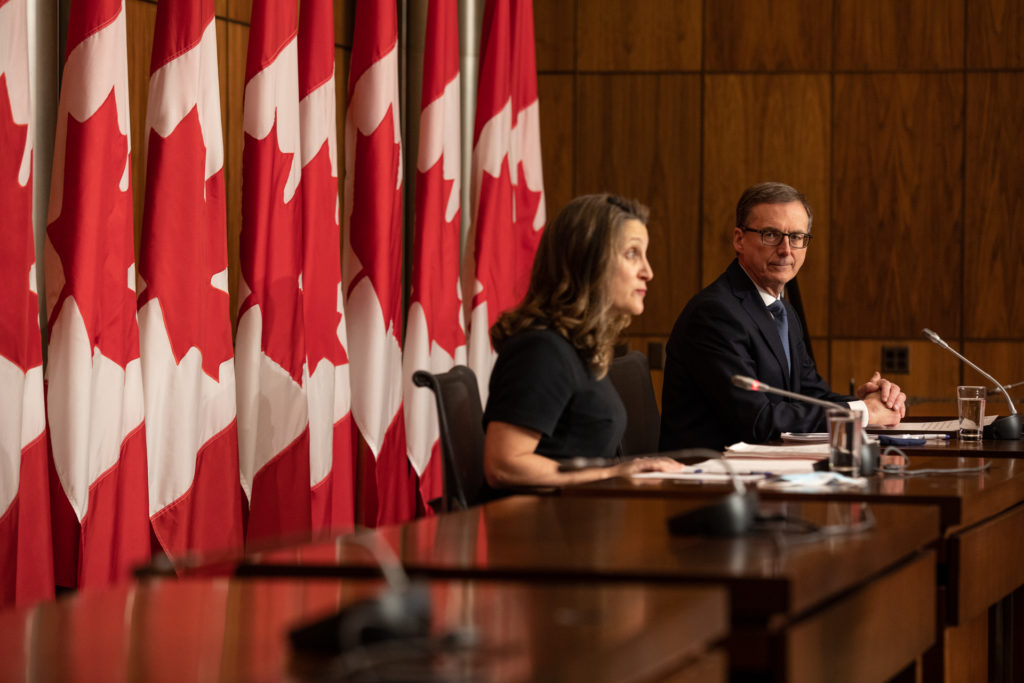Miners seek exemption from Canadian tax hike to save equity deals

Canada’s mining industry is pushing for an carveout to the federal government’s proposed increase to capital gains taxes, warning the hike will make it harder for junior miners to raise money to find new mineral deposits.
Finance Minister Chrystia Freeland’s new budget includes a measure to raise the capital gains tax inclusion rate to two-thirds from one-half. It applies to all gains made by corporations and trusts, and to individual taxpayers on gains over C$250,000 (about $183,000) in a year.
For many investors, the tax hike would “significantly reduce” the value of a measure called the Mineral Exploration Tax Credit, or METC, which is designed to help companies raise money to explore for critical minerals like copper, nickel and lithium, according to the Mining Association of Canada.
The exploration tax credit is part of a basket of incentives Canada has introduced to stimulate financing of higher-risk mining projects in the country. Junior miners can raise equity by issuing flow-through shares, which are structured to allow the company to pass on certain expense deductions to investors — allowing those people to immediately reduce their income-tax bills. When the shares are sold, the proceeds are taxed as a capital gain.
Increasing the capital gains rate “effectively negates the tax benefit associated with the METC,” Pierre Gratton, the mining association’s president, said in an interview.
“Our sense is that the Department of Finance didn’t connect the dots.”
Canada’s junior mining firms, which are responsible for many of the world’s mineral discoveries, typically struggle to attract capital due to the high rate of failure in exploration. Flow-through shares help: Miners raised C$2.6 billion using that vehicle over 2021 and 2022, according to the Prospectors & Developers Association of Canada.
The mining association estimates that 90% of junior exploration in Canada is financed with flow-through shares, and that the new capital gains measures could affect 70% of it.
“It’s exploration that we need if we’re going to find the next Voisey’s Bay or Raglan Mine, to provide the nickel and cobalt that automakers like Honda and Volkswagen need,” said Gratton. Voisey’s and Raglan are large nickel projects in eastern Canada.
The mining association met with officials in Freeland’s department last week to make the case for an exemption from the capital-gains increase. “We think there are ways to make the credit work that does not in any way compromise their budget numbers,” Gratton said.
“We are investing in our exploration mining sector,” Katherine Cuplinskas, a spokesperson for the finance minister, said in an emailed statement that didn’t specifically address the mining association’s concerns. “This includes the 15% Mineral Exploration Tax Credit, which was recently extended and will provide $65 million to support mineral exploration investment, and the 30% Critical Mineral Exploration Tax Credit.”
(By Jacob Lorinc)
{{ commodity.name }}
{{ post.title }}
{{ post.date }}




Comments